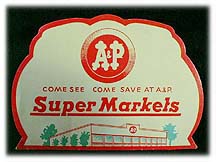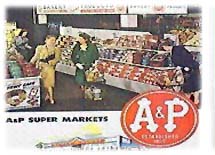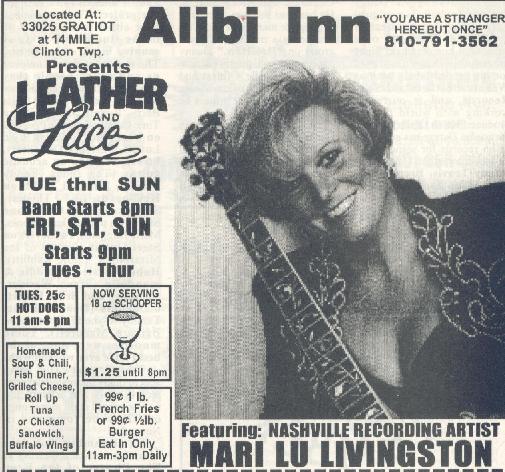
Waterstradt Home Page
Shania page - a Waterstraat cousin
Waterstraat History Books
Storys
Waterstradt Women
Zany Items
Waterstradt Immigration and Homesteading
More Waterstraat History
Waterstradt Land of Old Germany
Employment and schooling
Contact Page
Waterstraat Holidays
Favorite Links
Personal Page and Miscellaneous Items
Newspaper Items
Historian's Page
Guest Book Page
|
THE WORLD'S FOREMOST AUTHORITY ON THE HISTORY OF THE WATERSTRAAT FAMILY
Historian's Page
Early people began to colonize the Mecklenburg area about ten thousand years ago in the latter part of the Ice Age. The lives
of the people in these early times were geared towards hunting and they had a great dependence on animals. Their tools were
made from flint, bone and horn. Teutonic peoples inhabited the Mecklenburg area in the first centuries of the Christian era, but
early in the 6th century, it was seized by various Slavic tribes. The early name for the Mecklenburg area was Vandalia and later
it was called Wendenland. The land was not cultivated during the Slavic times, but was covered everywhere with primeval
forest. It was isolated and culturally cut off from the rest of Germany.
The Mecklenburg region was conquered by Henry the Lion, Duke of Saxony, in the latter half of the 12th century and the land
was first opened up by Henry through a combination of missionary work and colonization. In 1348 it was elevated to a duchy.
In 1549 Lutheranism was recognized as the State religion. Then, in 1621, Mecklenburg was split into two duchies:
Mecklenburg-Schwerin and Mecklenburg -Güstrow (changed to Mecklenburg-Strelitz in 1701). Mecklenburg-Schwerin was
about the size of the state of Connecticut. Mecklenburg-Strelitz was about as large as the state of Rhode Island in the United
States, and was divided into two parts, one on either side of Mecklenburg-Schwerin.
Between 1733 and 1755 the estate owners of Mecklenburg increased their land holdings. They were backed by the Kaiser of
the Holy Roman Empire in this effort. By the Convention of Rostock in 1755 in Mecklenburg Schwerin, all power was placed
in the hands of the Duke, nobles, and upper classes. The lower classes had no voice. Land was held under a Feudal system.
From 1759 to 1764 all of Mecklenburg was occupied by Prussia. Unlike the surrounding areas, however, Mecklenburg
managed to remain autonomous for another century.
In Mecklenburg during the 1700s and 1800s a type of Feudalism existed known as "Inherited Serfdom". The land owners
controlled the economy and ruled their estates with absolute authority. The peasants were dependant entirely on the nobles who
could even buy and sell them with or without their property. The tax rate on the peasants had to be reviewed every two to three
years, and was usually increased at that time. They could not acquire any more land than they already had. Their Landlords
produced crops for export from their vast estates by using the labor of these bonded peasants, servants and laborers. The
landlords were known as "Landed Junkers". his word comes from "Jung Herr" which means "young noble".
By the 1800's the Landlords had driven away more and more peasants with their highhanded ways. They then incorporated
those peasants' plots into their estates, and crop production expanded further. This callous robbery of the peasant properties
was known as "peasant seizure". Ten thousand peasants lost their holdings in this way. In Mecklenburg, where the Nobility
owned almost all of the land and dwellings, the number of estimated peasant foreclosures went from 2,490 to nearly 12,000 by
1800 AD. The former peasants who ad land left held only small holdings which ensured little more than a bare livelihood for
themselves.
In 1807 Baron von Stein tried to carry through a reform of the Feudal system. He felt the peasants' and laborers' lot had to be
improved. He did not want to abolish the large Landholders, but they were to be limited in their political and administrative
powers and to improve the state of their workers. At that time, workers worked from sunrise to sunset for a pfennig an hour, a
very small amount. he value of goods (potatoes, corn, wood, etc.) was deducted from that and most of their work was paid for
by these goods. Women and children performed heavy work. Baron von Stein's reform said that peasants could now change
their place of residence without permission, and children were allowed to learn a trade. But the Landlords ought these
progressive measures, refused to implement them, and the edict of Baron von Stein was never executed.
From 1806 to 1813 the country suffered great hardship and destruction. This period came to be known to all Mecklenburgers
as the "Franzosentid" ( period of French occupation). Robbery and pillage became commonplace. Both duchies, Mecklenburg
Schwerin and Mecklenburg Strelitz, were forced to join the Confederation of the Rhine under Napoleon's protectorate. Of the
more than 2,000 men who were conscripted from Mecklenburg to take part in Napoleon's campaign against Russia, less than
one hundred came home again.
After Napoleon's defeat in Russia, the dukes of both Mecklenburgs were among the first to renounce the alliance with France.
In the War of German Liberation which followed (1813-1815), Mecklenburg played a significant part in defeating Napoleon
and liberating Germany from France. In 1815, the dukes of Mecklenburg were elevated to "Grand Dukes", and Mecklenburg
became a Grand Duchy. With the coming of peace, however, there also came a period of economic depression which lasted
until the early 1820s.
Legally, serfdom was abolished in Mecklenburg in 1820 and the peasants were freed from their obligations to land owners. But
this worsened the conditions for most peasants because the land owners were freed , at the same time, of any obligations under
feudal law to provide their tenants with any means of supporting themselves, thus leaving the peasants in even greater poverty.
The servant of a noble landowner was not even permitted to marry unless his master gave him permission and a place to live.
Those villagers who were without land became cottagers or gardeners. Eventually they were simply known as day laborers
(Tageloehners) and lived in poverty. They were deprived almost entirely of their earnings and thereafter were forced to work
for a starvation wage on the Junker estates. They traveled the countryside, moving from estate to estate as the land owner
required their labor for plowing, planting or harvesting crops. The life they lived gave no possibility of resistance in an effort to
better their condition.
Many peasants and labourers left Mecklenburg and emigrated to other countries s their conditions became unbearable. In the
early 1840s, the liberal bourgeois party began to speak out against the noble landowners and the special privileges granted
them. By 1848 there were secret meetings in many Mecklenburg towns of reform societies and a political revolution was a
distinct possibility. However the revolution did not have enough support and eventually failed. The workers' situation in
Mecklenburg remained bleak until, under the Soviet Military Administration, in October 1945 there was a land reform and the
large estates and their landholders disappeared. The government took over their land.
The Mecklenburg Duchies joined the German Empire in 1871 and after World War I were declared states of the new German
Republic. In 1934 they were united into a single German state of Mecklenburg. After World War II Mecklenburg became part
of the Soviet Zone. The state was dissolved in 1952, when East Germany was reorganized into districts. The area remained
behind the Iron Curtain and part of East Germany until 1990 when Germany was unified and the state of Mecklenburg-West
Pomerania was created.
The dukes of Mecklenburg-Schwerin had their castle (Schloß) and main residence in the city of Schwerin. The seat of
government and main home for the dukes of Mecklenburg-Strelitz was in Neustrelitz. Princess Sophie Charlotte of
Mecklenburg-Strelitz became Queen Charlotte of England in 1761.
|
und das bin ich
|

The world's foremost authority on the history of the Waterstraat family
|

New! items from A&P
|

A&P - Easter 1962
|

|

|
Mari Lu Livingston
This week's feature: A conversation with Mari Lu Livingston
The Alibi Lounge, what a thrill it was to dance to the music of Mari Lu Livingston.
Mari Lu was born in Detroit, and raised in Chelsea, Michigan, very close to
where I had a summer home,
and where Ted Nugent lives. You have an excellent chance to see Ted in person,
if you go to the bakery shop in Chelsea on a Sunday morning, where he is
frequently seen by us. My own place was closer to Waterloo, on Portage Lake,
but we always went into Chelsea town, to catch crayfish at the city park in
Chelsea, and to the bakery shop, and to visit the biscuit company that is the
main employer of Chelsea.
Mari's family then moved around a lot, from Riverside, California, to Nashville
Tennesee,
Mari Lu: "my father, Charles Young, was from Cookeville, Tennesee, and his
family were tobacco farmers. My mother, Roseanne, is from Minnesota. They
met in Detroit. I have one sister, Lisa, and 2 brothers, Chuck, and Mike"
Mari Lu's family moved back to Chelsea where they finaly settled and she
finished school.
Mari Lu:"I was belssed with a musical lineage, learning to play the guitar at the
age of five. My father would play the guitar and banjo, and sing to Lisa and I. My
mother played the piano beautifully and would have me sit and play with her. But
my real love was the guitar. When I was just out of high school, my sister and I
formed a band whre Lisa played drums. We would play for weddings andin
clubs. Lisa ended up marryig our bass player. I wanted to do more than play
around my hometown. I wanted to see where my music could lead me."
Mari Lu joined a road band, playing all around the United States and Canada as
lead singer and rhythm guitar player.
Mari Lu: "In 1986, I left the band to go to Tennessee and work the Nashville area.
It was a great learning experience for me both professionally and personally. I
met a lot of people and observed the Nashville scene."
She went on to perform in the Las Vegas area near Tom Waterstraat, and found
her way back home to the Detroit area.
In 1997, Mari Lu entered the Loretta Lynn Singing Songwriting Competition. Mari
Lu won the Michigan areaa competition that qualified her to go to Nashville to
compete in the national championship.
Mari Lu : "I was just glad to win and make it to the state level and win first place.
It was a thrill just to be able to see how some of the other contestants sounded.
The competition was held at Loretta Lynn's ranch in Hurricane Mills, Tennesse.
There were state winners from all over the country with the same intent and goal
as mine, to win the national co petition. What an experience!"
She left the national competition placing third .
Mari Lu has been working with many artists, and playing current concerts with
country superstars Aaron Tippin, our old favorite Toby Keith who had that wonder
full song: Look at me Now"!!!!! Toby Keith's song "Look at me Now, Now that I'm
on my Way" is a real hard hitting song that shows that: "what goes around,
comes around". When girls do wrong to others, it always comes back to them.
Mari Lu is one of the very few local who has opened for a mainliner here in
Detroit, and asked to do an encore!!!!
Although we went to see Mari Lu many times at the Alibi Inn in Clinton Twp, and
danced to her music there, we missed our chance to see Mari Lu in Florida last
year when our holiday trip was canceled due to illness. We had plans to go to
Florida and attend the Shania Twain(a.k.a. Eilleen Edwards) concert, in Florida
that December, and Mari Lu appeared with Shania at that show we were
supposed to go to. That concert, part of it anyway, an hour or so of it, has been
telecast on VH1, be sure to see it, but unfortunately, since our Florida trip was
canceled, you wont see us in the audience. What a disappointment - so many
times having just missed being with Shania, from not going to see Shania being
born to the Clarence and Sharon Edwards cousins in Windsor, Canada on a cool
rainy Saturday in 1965, to the Florida concert in December 1999. Such is fate. If
any Waterstraat wants to meet Shania, write to me, and we will see if we can
get a trip put together to her main home in Montreaux. Shania frequently goes
into town, esp on Saturdays, and shops in the local stores and dines at 2 of her
favorite restaurants in town. I know her Florida home is closer, but Shania lives
in a gated community in Fort Meyers, and seldom leaves her home while in
Florida. She is very reclusive when in Florida, but very open and available in
Montreaux.
Anyway, back to Mari Lu, Mari Lu is a gifted, talented, and energetic singer,
songwriter, and musician, who bring s her own infectious sytle, dazzling
audiences everywhere. For Mari Lu, music is a language all its own. It's a way to
touch peoples hearts, and she does it like no one else.
You can support Mari Lu, and join Mari Lu's fan club, by writing to
Mari Lu Livingston
P.O. Box 46305
Mt. Clemens
Michigan
48046-6305
|
|